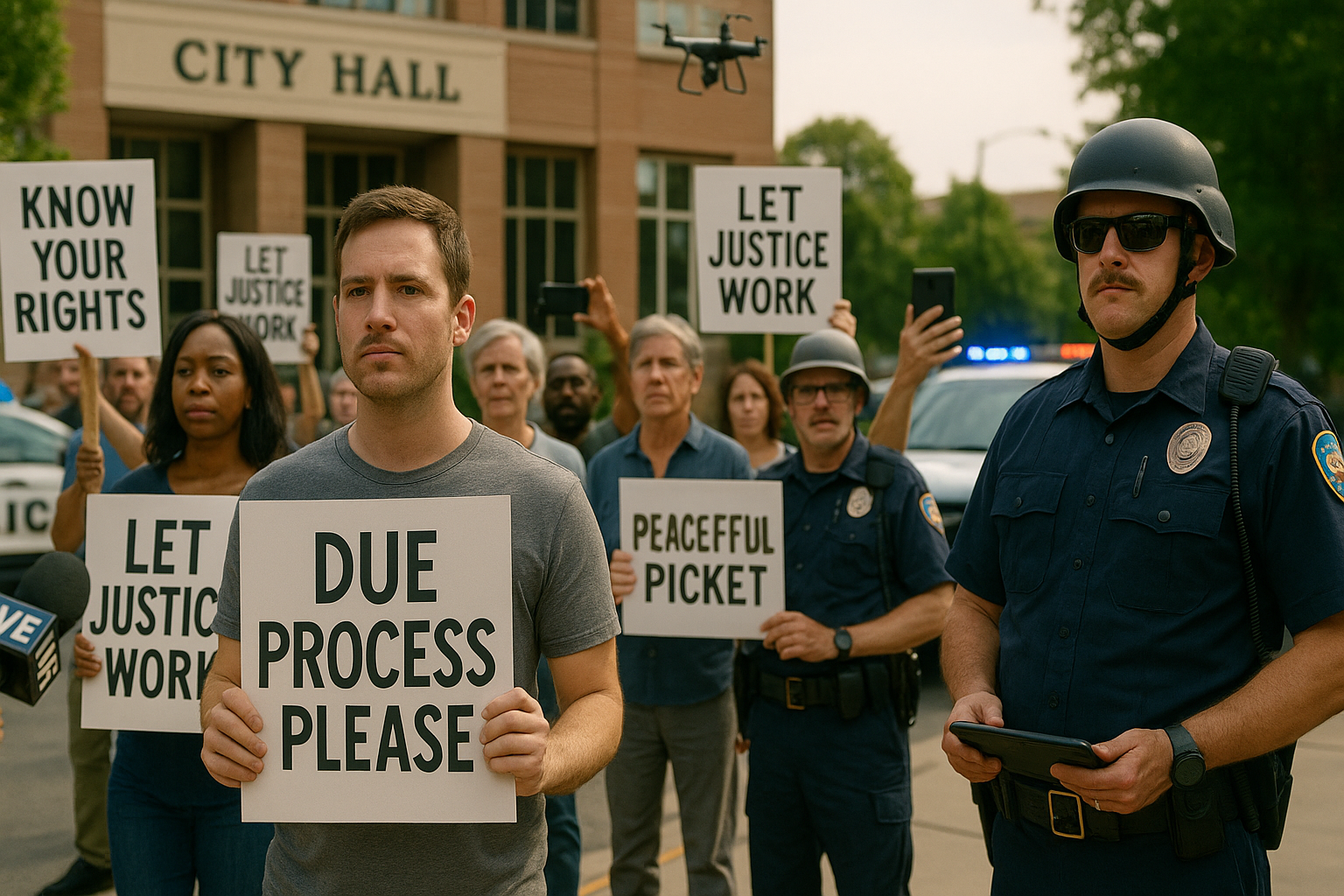Protesting in Prescott, AZ: Know Your Rights & What To Do If You’re Arrested
Arrested or cited after a protest in Prescott or anywhere in Yavapai County?
Call Ted Law (Prescott): 928-776-1782
140 N Montezuma St, Prescott, AZ 86301
Free, confidential consultation.
Your First Amendment rights in Arizona
Peaceful protests, rallies, and marches are protected by the U.S. Constitution. Police can’t arrest you just for protesting. Arrests typically happen when officers believe a separate law was broken (e.g., blocking traffic without a permit, refusing lawful orders, property damage, or violence).
Arizona (and Prescott) may enforce reasonable time/place/manner rules—think permits, sound limits, and route control. Those rules regulate how you protest, not what you say.
Prescott-specific tips (where and how to protest)
-
Public forums—like sidewalks, streets, and the Courthouse Plaza area—carry the strongest free-speech protections. Stay on sidewalks and keep entrances clear (e.g., shops along Whiskey Row).
-
Marching in the street generally requires a permit and a defined route. Without one, you risk an “obstructing a thoroughfare” charge.
-
Private property (shopping centers, parking lots) usually requires owner permission; otherwise you could face criminal trespass.
Charges we most often see in Yavapai County protest cases
-
Unlawful assembly (A.R.S. § 13-2902)
-
Riot (A.R.S. § 13-2903)
-
Disorderly conduct (A.R.S. § 13-2904)—includes unreasonable noise, fights, or reckless weapon handling
-
Obstructing a public thoroughfare (A.R.S. § 13-2906)
-
Failure to comply with a lawful order / traffic-related offenses
-
Resisting arrest (A.R.S. § 13-2508)—even “going limp” can be charged as passive resistance
-
Criminal damage (A.R.S. § 13-1602)
Being nearby when others break the law is not a crime. But ignoring a lawful dispersal order or even minor physical resistance can still lead to charges.
If police declare an “unlawful assembly”
-
Listen for the order (and route of egress) and leave promptly.
-
Record from a safe distance without interfering.
-
Don’t argue on the street—save it for court.
If you’re stopped, detained, or arrested
-
Ask: “Am I free to leave?” If yes, walk away calmly.
-
If not: “I’m exercising my right to remain silent and I want a lawyer.”
-
Do not consent to searches of your person, bag, or phone.
-
You can record officers in public if you don’t interfere or violate distance directives.
-
Provide ID only when legally required.
-
Say nothing on social media about your case.
After an arrest in Prescott or Prescott Valley
-
Call Ted Law (928-776-1782) as soon as you can.
-
Write down details while fresh: location, what officers said, dispersal warnings, badge names/numbers, witnesses, nearby cameras.
-
Preserve evidence: original videos/photos, clothes, injuries.
-
Don’t miss court dates—failure to appear can trigger a warrant.
How we fight protest-related charges in Yavapai County
-
First Amendment defenses: overbroad or vague orders; improper time/place/manner enforcement; selective/retaliatory policing.
-
Probable-cause challenges: presence ≠ participation; we separate your conduct from others’.
-
Video forensics: sync body-cams, bystander clips, and nearby surveillance to build the real timeline.
-
Suppression motions: unlawful stops, seizures, or phone searches.
-
Negotiation & dismissals: diversion, reduced counts, or outright dismissals when evidence is thin.
Speak to a Prescott protest defense lawyer today
Ted Law | DUI & Criminal Defense
928-776-1782 • 140 N Montezuma St, Prescott, AZ 86301
Same-day consultations • Flexible payment options
This page is general information, not legal advice. Local ordinances and permitting rules can change—call us to review your situation.
